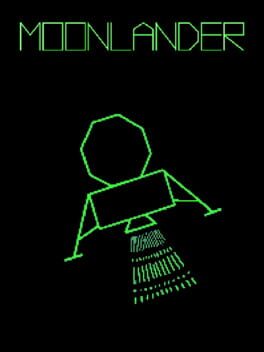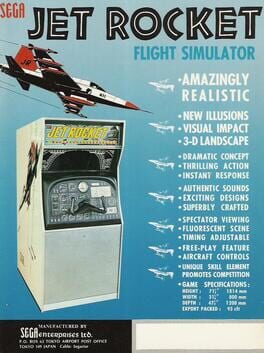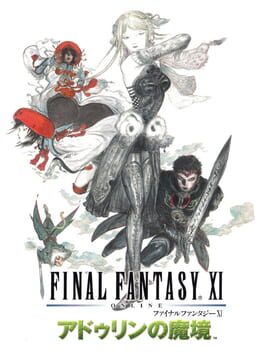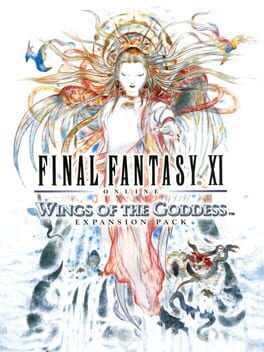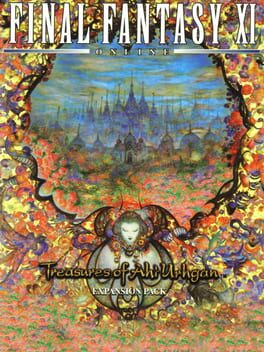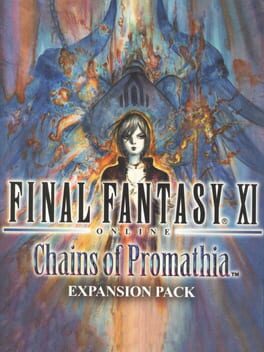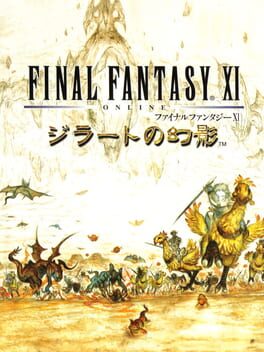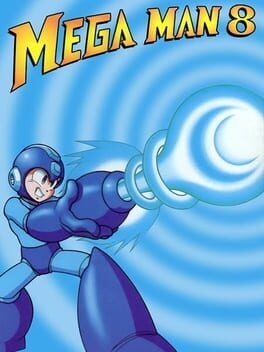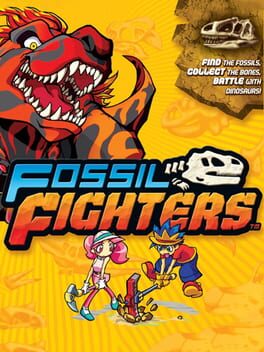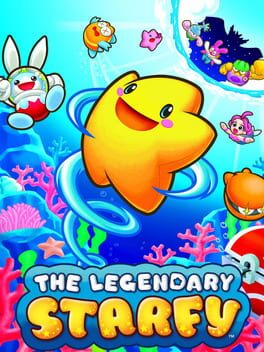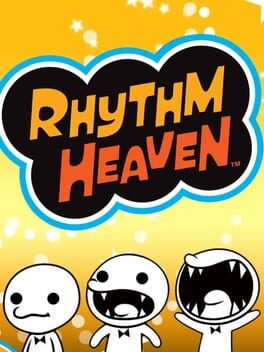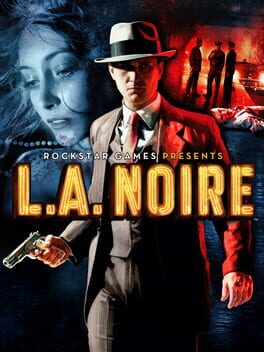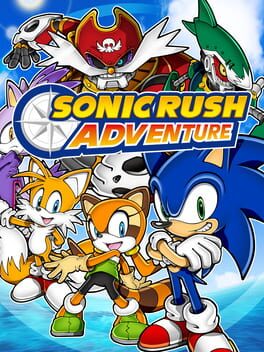DeviousJinjo
1973
Lunar Lander, now with fun and lights!
With the addition vector graphics and real-time falling, Moonlander becomes the critical link between Space War! and Asteroids. It is a game about precise and intricate movement of a visible, an onscreen "character" that is not just a paddle, and isn't just grid-based maze navigation or locked to the footage of a film reel like 1954's Auto Test.
Moonlander is an utterly nonviolent game that isn't -really- about achieving a high score, and features no opponent outside of that scoreboard. It is, first and foremost, a game about the raw satisfaction of successfully manipulating physics.
By modern standards, any version of Lunar Lander feels absolutely ponderous. It feels like the bare skeleton of a video game, presented in slow motion. Nonetheless, Moonlander is essentially the first important, substantive remake in gaming history, and is a worthy member of video game's founding pantheon.
With the addition vector graphics and real-time falling, Moonlander becomes the critical link between Space War! and Asteroids. It is a game about precise and intricate movement of a visible, an onscreen "character" that is not just a paddle, and isn't just grid-based maze navigation or locked to the footage of a film reel like 1954's Auto Test.
Moonlander is an utterly nonviolent game that isn't -really- about achieving a high score, and features no opponent outside of that scoreboard. It is, first and foremost, a game about the raw satisfaction of successfully manipulating physics.
By modern standards, any version of Lunar Lander feels absolutely ponderous. It feels like the bare skeleton of a video game, presented in slow motion. Nonetheless, Moonlander is essentially the first important, substantive remake in gaming history, and is a worthy member of video game's founding pantheon.
1970
Dude, just look how cool this is. What an awesome feat of mega-early arcade engineering.
https://www.youtube.com/watch?v=D0qlfEuzj6U
I suppose this is as good a place as any to clarify my personal definitions about what is and is not, a video game. Jet Rocket is an electro-mechanical video PROJECTION game, and I count those. Under my definition, a video game is an electronic game that is designed around a video signal output to a screen that needn't be made of glass, by any means including projection. Playing Super Smash Brothers by way of a projector in a movie theater doesn't make it any less a video game. This makes the Cathode Ray Tube Amusement Device my answer for "the first known video game" as it is a fully designed game meeting those criteria, whether a prototype was ever physically made or not. Most games, after all, exist only as information. If you want to render this definition ridiculous, this also means that aiming a laser pointer at the floor and watching the cat pounce at the target is PROBABLY "a video game." It's just a poorly designed one with inconsistent rules. Anyway...
Jet Rocket is, as far as I'm aware, literally the first electrically powered flight simulator game, technically the first FPS video game (Shoot the Bear does not feature anything resembling a screen, though I guess it does at least employ a laser, I think?), and features primordial "in-world" movement in a way that at least qualifies it for consideration as the first "open-world" game. That's a HELL of a resume, and yet somehow we're not all talking about Jet Rocket.
https://www.youtube.com/watch?v=D0qlfEuzj6U
I suppose this is as good a place as any to clarify my personal definitions about what is and is not, a video game. Jet Rocket is an electro-mechanical video PROJECTION game, and I count those. Under my definition, a video game is an electronic game that is designed around a video signal output to a screen that needn't be made of glass, by any means including projection. Playing Super Smash Brothers by way of a projector in a movie theater doesn't make it any less a video game. This makes the Cathode Ray Tube Amusement Device my answer for "the first known video game" as it is a fully designed game meeting those criteria, whether a prototype was ever physically made or not. Most games, after all, exist only as information. If you want to render this definition ridiculous, this also means that aiming a laser pointer at the floor and watching the cat pounce at the target is PROBABLY "a video game." It's just a poorly designed one with inconsistent rules. Anyway...
Jet Rocket is, as far as I'm aware, literally the first electrically powered flight simulator game, technically the first FPS video game (Shoot the Bear does not feature anything resembling a screen, though I guess it does at least employ a laser, I think?), and features primordial "in-world" movement in a way that at least qualifies it for consideration as the first "open-world" game. That's a HELL of a resume, and yet somehow we're not all talking about Jet Rocket.
2023
FFXVI is an absolute heartbreaker, but like all good heartbreakers, it hurts because it's beautiful. Final Fantasy XVI hits you like a thunderbolt with its first impression and then leaves you sick and wanting. It is a game with a miraculous first third, a worrisome middle, and an empty, frustrating end. It is phenomenally localized (in English at least, I can't speak for languages I don't... speak) and marvelously voice acted at all times. Graphically it is a drop-dead gorgeous work of software, even if it is occasionally stuttered by the understandable frame drops that accompany such visuals. Masayoshi Soken continues to prove himself as Uematsu's truest successor as his scores sell these grand feasts of spectacle in ways that so few others ever could. The thrills of FFXVI's combat are enough to place it above many games in the franchise all by itself, and yet despite all of these many marvels, the halls of FFXVI discourse quake tremorously with the darkest of vibes, and I myself am far from untouched.
FFXVI's actual PLOT, more than its characters, more than its dialogue, and more than any other aspect of its writing, is ultimately its kiss of death. Naturally I will refrain from running down my long list of specific missed opportunities, fumbled setups, and outright refusals to explore interesting and important subjects, as this is a spoiler free review. I will however, make sweeping generalized statements about how the script seemingly finds the least interesting possible way to resolve almost every thread the early game so beautifully sets up. Almost every easy lay-up manages to miss the net, and it leaves me genuinely stunned. Its themes are so rote, so mechanically ham-handedly shallow that I spent most of the finale in audible groans. When I say this I am not drawing comparisons to Game of Thrones, Neon Genesis Evangelion, Kaiju films, or any of FFXVI's other legendary inspirations. I'm comparing it to other Final Fantasy games. Truthfully this franchise has some of the best endings in the business. Final Fantasies VI, IX, X, XV, and even many of XI and XIV's expansions by this same team nail their deeply emotional landings so gracefully and flawlessly that they make the end of XVI look like something hastily scrawled in the back of a middle schooler's notebook. It is so trite and inelegant that I fail to enjoy it even on a schlock level. Truly, Final Fantasy XVI is the Fast 8 of the franchise. It is big and dumb and loud and... fun, and awesome.
Much internet text has already been spilled over whether or not FFXVI's combat is Devil May Cry Enough. Devil May Cry is of course renowned for its intrinsically exhilarating combo-based, incredibly flexible combat and its sky-high skill ceiling. To master Devil May Cry V is to study an art. FFXVI's naked imports of Nero's grabby hand, enemy step, helm splitter, stinger, devil trigger and more has led some to declare it as "literally Devil May Cry" and others to bristle at any comparison between the two at all, considering the perceived shallowness to be an insult to or lack of understanding of Devil May Cry. This is much ado about nothing. No, FFXVI is not "literally" Devil May Cry, but it has so much shared DNA that to chastise those making comparisons to it is definite hair-splitting. No, FFXVI does not have "only one combo." It has one basic, bread and butter, build-agnostic combo with tiny variations and a lot of equipable cooldown-based abilities that can be used to extend combos according to the situation at hand. Yes, the skill ceiling is lower because you can't have like ten different weapons with completely different combo sets available on your character at all times. You have to tailor a loadout specific to what you're trying to do. That's the RPG part. After some 50 hours that bread and butter combo definitely starts to feel like not quite enough butter spread over just a little too much bread, but FFXVI is not TRYING to be "literally Devil May Cry", and it's succeeding pretty damned well at exactly what its trying to be. Unfortunately that's not RPG enough for people who didn't get over this stuff back in FFXIII and it's not action enough for DMC mavens... but then again neither is Kingdom Hearts 2, another great action RPG.
Personally, I just wish there was something else to do besides fighting. After also being Full of Shit on The Diversity Issue instead of just owning up to it, Yoshi-P infamously joked (and it was a joke, please chill the fuck out) about the main character of FFXVI having more important things to do than play Blitzball. There has since been a great deal of fixation on a perceived insult to specifically Blitzball (which he only used because it's the example the interviewer cited in the question) rather than the underlying bullshit excuse about Clive being too busy for minigame induced variety. Countless sidequests in this game involve Clive collecting literal dirt, picking literal flowers, traveling halfway across the world to get a bone for his dog to chew on, or just picking up deliveries for his supporting cast when sending anyone else would do just fine. There are extremely obvious times and an extremely obvious place wherein Clive could SO EASILY sit down for a game of setting-appropriate cards with ANY of these characters. Triple Triad would have fit here about a thousand times more gracefully than it does in Final Fantasy VIII. One of the chief reasons that I consider FFXIV to be a better game is because it DOES include these kinds of diversions, even if the quest design of both games is functionally identical. Every quest enters formally into the player's log and involves either talking to a few people, gathering some objects off the ground, fighting some enemies, or some combination of the three. Main quests alternate between show-stopper FFXIV dungeon setpieces (linear environments with bespoke, well designed boss encounters preceded and followed by lavish cutscenes) and the same low-rent filler stuff as the sidequests. I tend not to complain much about sidequests in games, as they are in fact designed to be optional. If you love the game and want an excuse to play more of it, that's what they're there for, just like trophies and/or achievements. Once it becomes a baseline part of any main playthrough however, this becomes a very different conversation. FFXIV gets away with this for multiple reasons. It's an MMO, and the sheer volume of content, the cooperative online novelty, and frankly a lower bar of expectation in the genre makes people far more accepting of that filler. MMOs are marathons, and most players approach them with this understanding. However even as a Final Fantasy XIV player TRYING to convince themselves that they're playing an FFXIV expansion, there are some very important details that render this "one of the bad ones." In modern FFXIV, those kinds of MSQ sections almost always either take place in areas that are new to the player or precipitate some kind of big and interesting development in the story, whether that's an emotional character moment or a climactic plot turn. FFXVI by contrast often sends the player pinging back and forth through tired, familiar locales for the sake of uninteresting drudgery that is not worth the trip. So many of these sections add almost nothing to the overarching story and are only mandatory because some detail must (in the writer's eyes) be laboriously established before it can play into the main plot in some minor way. This is exhausting, and contrasts immensely with the game's grand-slam opening chapters and its occasional over-the-top spectacle setpieces. The sandwich makes the valleys deeper and places greater burdens on the peaks, which often fail to pay off the debt they've been handed, even if they'd be welcomed in isolation.
These story troughs and their matching sidequests are absurdly overwritten. This has come to be a creative signature of Creative Business Unit 3. It is an issue shared by both FFXI and FFXIV. While the dialogue is perfectly competent and does deliver its emotional punches when it needs to, there's simply way the fuck too much of it. Situations that require at most five good lines instead revel in a grossly unnecessary twenty or thirty. It makes SKIPPING that dialogue a near necessity, because listening in full to each fully voiced line is certain to wear the player down to the point that they just skip the sidequests entirely and stop paying attention. This would be a tremendous shame, as the sidequest chains contain essential characterization and tender moments with a supporting cast that otherwise feels bland, lifeless, and underdeveloped. In FFXIV players have the luxury of knowing when to pay attention because any such conversation will be voiced, while anything they don't need to care about is not. In Final Fantasy XVI, almost every single line is voiced, and it frankly feels rude to skip through such expert voicework. Those who always let these experts finish their business however might be claimed by old age before they finish the game.
One such supporting cast member exists to facilitate the crafting system, because Square Enix is definitely not above the pernicious misunderstanding that every single AAA video game REQUIRES some sort of tacked on crafting bullshit in order to succeed. The crafting in FFXVI certainly does not get in the player's way, but that's because it's barely there at all. Crafting materials are the main resource that is found from treasure chests and enemy drops out in the world, and thus should theoretically be used as an incentive for thorough exploration. Unfortunately almost all of these materials are functionally worthless, and accumulating mountains of them will avail the player nothing. There is almost nothing to craft, the recipes don't use many materials, and the game drops free equipment upgrades in your lap so frequently that any boosts earned from crafted gear feel completely trivial... until one gets further down the hunt board. Specific, unique, one-time materials from clearing hunts do combine into worthwhile equipment, but the hunts are clearly arranged into tiers based on when they become available anyway, so the reward could just as easily have been given for clearing each tier. The hunt rewards are just funneled through the crafting system to give it a reason for existing. Does this bother me? In a superficial, petty way, yes. Is it anywhere near as detrimental to the game as its plot or its pacing? Definitely not... but it speaks to a broader issue.
Final Fantasy XVI wears the trappings of many things. It's a Kaiju Mecha Game of Thrones Devil May Cry that revolves around crystals, has crafting, swears a lot, and does the big graphics. Those are some extremely cool things... but FFXVI just feels like a fan of each of them, not a creator in its own right. It's a celebration of those things but it doesn't seem to fully understand any of them, and doesn't have anything insightful to say. In what may very well have been a bid to appear more adult, FFXVI accidentally reveals its shallow childishness in front of the whole school... and yet I can think of at least five less competent Final Fantasies just off the top of my head.
FFXVI's actual PLOT, more than its characters, more than its dialogue, and more than any other aspect of its writing, is ultimately its kiss of death. Naturally I will refrain from running down my long list of specific missed opportunities, fumbled setups, and outright refusals to explore interesting and important subjects, as this is a spoiler free review. I will however, make sweeping generalized statements about how the script seemingly finds the least interesting possible way to resolve almost every thread the early game so beautifully sets up. Almost every easy lay-up manages to miss the net, and it leaves me genuinely stunned. Its themes are so rote, so mechanically ham-handedly shallow that I spent most of the finale in audible groans. When I say this I am not drawing comparisons to Game of Thrones, Neon Genesis Evangelion, Kaiju films, or any of FFXVI's other legendary inspirations. I'm comparing it to other Final Fantasy games. Truthfully this franchise has some of the best endings in the business. Final Fantasies VI, IX, X, XV, and even many of XI and XIV's expansions by this same team nail their deeply emotional landings so gracefully and flawlessly that they make the end of XVI look like something hastily scrawled in the back of a middle schooler's notebook. It is so trite and inelegant that I fail to enjoy it even on a schlock level. Truly, Final Fantasy XVI is the Fast 8 of the franchise. It is big and dumb and loud and... fun, and awesome.
Much internet text has already been spilled over whether or not FFXVI's combat is Devil May Cry Enough. Devil May Cry is of course renowned for its intrinsically exhilarating combo-based, incredibly flexible combat and its sky-high skill ceiling. To master Devil May Cry V is to study an art. FFXVI's naked imports of Nero's grabby hand, enemy step, helm splitter, stinger, devil trigger and more has led some to declare it as "literally Devil May Cry" and others to bristle at any comparison between the two at all, considering the perceived shallowness to be an insult to or lack of understanding of Devil May Cry. This is much ado about nothing. No, FFXVI is not "literally" Devil May Cry, but it has so much shared DNA that to chastise those making comparisons to it is definite hair-splitting. No, FFXVI does not have "only one combo." It has one basic, bread and butter, build-agnostic combo with tiny variations and a lot of equipable cooldown-based abilities that can be used to extend combos according to the situation at hand. Yes, the skill ceiling is lower because you can't have like ten different weapons with completely different combo sets available on your character at all times. You have to tailor a loadout specific to what you're trying to do. That's the RPG part. After some 50 hours that bread and butter combo definitely starts to feel like not quite enough butter spread over just a little too much bread, but FFXVI is not TRYING to be "literally Devil May Cry", and it's succeeding pretty damned well at exactly what its trying to be. Unfortunately that's not RPG enough for people who didn't get over this stuff back in FFXIII and it's not action enough for DMC mavens... but then again neither is Kingdom Hearts 2, another great action RPG.
Personally, I just wish there was something else to do besides fighting. After also being Full of Shit on The Diversity Issue instead of just owning up to it, Yoshi-P infamously joked (and it was a joke, please chill the fuck out) about the main character of FFXVI having more important things to do than play Blitzball. There has since been a great deal of fixation on a perceived insult to specifically Blitzball (which he only used because it's the example the interviewer cited in the question) rather than the underlying bullshit excuse about Clive being too busy for minigame induced variety. Countless sidequests in this game involve Clive collecting literal dirt, picking literal flowers, traveling halfway across the world to get a bone for his dog to chew on, or just picking up deliveries for his supporting cast when sending anyone else would do just fine. There are extremely obvious times and an extremely obvious place wherein Clive could SO EASILY sit down for a game of setting-appropriate cards with ANY of these characters. Triple Triad would have fit here about a thousand times more gracefully than it does in Final Fantasy VIII. One of the chief reasons that I consider FFXIV to be a better game is because it DOES include these kinds of diversions, even if the quest design of both games is functionally identical. Every quest enters formally into the player's log and involves either talking to a few people, gathering some objects off the ground, fighting some enemies, or some combination of the three. Main quests alternate between show-stopper FFXIV dungeon setpieces (linear environments with bespoke, well designed boss encounters preceded and followed by lavish cutscenes) and the same low-rent filler stuff as the sidequests. I tend not to complain much about sidequests in games, as they are in fact designed to be optional. If you love the game and want an excuse to play more of it, that's what they're there for, just like trophies and/or achievements. Once it becomes a baseline part of any main playthrough however, this becomes a very different conversation. FFXIV gets away with this for multiple reasons. It's an MMO, and the sheer volume of content, the cooperative online novelty, and frankly a lower bar of expectation in the genre makes people far more accepting of that filler. MMOs are marathons, and most players approach them with this understanding. However even as a Final Fantasy XIV player TRYING to convince themselves that they're playing an FFXIV expansion, there are some very important details that render this "one of the bad ones." In modern FFXIV, those kinds of MSQ sections almost always either take place in areas that are new to the player or precipitate some kind of big and interesting development in the story, whether that's an emotional character moment or a climactic plot turn. FFXVI by contrast often sends the player pinging back and forth through tired, familiar locales for the sake of uninteresting drudgery that is not worth the trip. So many of these sections add almost nothing to the overarching story and are only mandatory because some detail must (in the writer's eyes) be laboriously established before it can play into the main plot in some minor way. This is exhausting, and contrasts immensely with the game's grand-slam opening chapters and its occasional over-the-top spectacle setpieces. The sandwich makes the valleys deeper and places greater burdens on the peaks, which often fail to pay off the debt they've been handed, even if they'd be welcomed in isolation.
These story troughs and their matching sidequests are absurdly overwritten. This has come to be a creative signature of Creative Business Unit 3. It is an issue shared by both FFXI and FFXIV. While the dialogue is perfectly competent and does deliver its emotional punches when it needs to, there's simply way the fuck too much of it. Situations that require at most five good lines instead revel in a grossly unnecessary twenty or thirty. It makes SKIPPING that dialogue a near necessity, because listening in full to each fully voiced line is certain to wear the player down to the point that they just skip the sidequests entirely and stop paying attention. This would be a tremendous shame, as the sidequest chains contain essential characterization and tender moments with a supporting cast that otherwise feels bland, lifeless, and underdeveloped. In FFXIV players have the luxury of knowing when to pay attention because any such conversation will be voiced, while anything they don't need to care about is not. In Final Fantasy XVI, almost every single line is voiced, and it frankly feels rude to skip through such expert voicework. Those who always let these experts finish their business however might be claimed by old age before they finish the game.
One such supporting cast member exists to facilitate the crafting system, because Square Enix is definitely not above the pernicious misunderstanding that every single AAA video game REQUIRES some sort of tacked on crafting bullshit in order to succeed. The crafting in FFXVI certainly does not get in the player's way, but that's because it's barely there at all. Crafting materials are the main resource that is found from treasure chests and enemy drops out in the world, and thus should theoretically be used as an incentive for thorough exploration. Unfortunately almost all of these materials are functionally worthless, and accumulating mountains of them will avail the player nothing. There is almost nothing to craft, the recipes don't use many materials, and the game drops free equipment upgrades in your lap so frequently that any boosts earned from crafted gear feel completely trivial... until one gets further down the hunt board. Specific, unique, one-time materials from clearing hunts do combine into worthwhile equipment, but the hunts are clearly arranged into tiers based on when they become available anyway, so the reward could just as easily have been given for clearing each tier. The hunt rewards are just funneled through the crafting system to give it a reason for existing. Does this bother me? In a superficial, petty way, yes. Is it anywhere near as detrimental to the game as its plot or its pacing? Definitely not... but it speaks to a broader issue.
Final Fantasy XVI wears the trappings of many things. It's a Kaiju Mecha Game of Thrones Devil May Cry that revolves around crystals, has crafting, swears a lot, and does the big graphics. Those are some extremely cool things... but FFXVI just feels like a fan of each of them, not a creator in its own right. It's a celebration of those things but it doesn't seem to fully understand any of them, and doesn't have anything insightful to say. In what may very well have been a bid to appear more adult, FFXVI accidentally reveals its shallow childishness in front of the whole school... and yet I can think of at least five less competent Final Fantasies just off the top of my head.
Note on all expansions: Every part of FFXI takes an enormous hit in my ratings for existing within the god awful, unconscionable interface, code base, and general design philosophies of FFXI. These things are the foundations of the whole game, and thus no expansion can fully escape these sins. Despite this I have chosen to log them all separately because they are each different beasts.
All of these expansions take a while to get moving, but not like Seekers of Adoulin does. FFXI's final full, paid expansion came after several years of largely unsuccessful mini expansions. A Crystalline Prophecy's story feels like a waste of time and aside from one somewhat interesting mission where the player has their level cap drastically lowered, it doesn't deliver outside of that story either. A Moogle Kupo d'Etat is an agonizing series of fetch quests even more laborious than most of what the earliest eras of the game ask of you, and the comic relief moogle storyline definitely does not have enough punch to carry things. A Shantotto Ascension thankfully does, if players can clear the vicious, hateful crafting hurdles necessary to even start the mission line. The three-part Abyssea scenario is quite transparently just there to give players something to do as it revolves around farming key items with low drop rates from specially spawned monsters which require OTHER low drop rate items from OTHER specially spawned monsters which requi-
So the point is that SE were clearly shifting away from heavy investments in the FFXI content pipeline by this point but weren't willing to give up the subscription model, and that's basically the only excuse I can think of for why Seekers of Adoulin is time-gated all the way to hell and back.
For some reason (slowing you down so you'll stay subscribed longer despite the new development pace) Seekers of Adoulin features three massive walls to halt your progress, all near the start of the story. You can either do what I did and turn the game off for a week in between each of these gates, or you can go through a complicated and gil-intensive song and dance to raise your reputation and reduce the raw time requirement, but farming the gil or materials to do that is going to take its own hefty chunk of time, now isn't it? Even amidst those huge walls are countless smaller ones that demand the player wait until the next in-game day. These were hardly unheard of in FFXI prior to this, but were never half as ubiquitous as they are here.
When the game actually lets you play it, Seekers of Adoulin is good! for FFXI, anyway. It has a lovely story with good characters that is overwritten but emotionally engaging. Its villain is weak, particularly in the wake of Wings of the Goddess, but it hits all of the mythologically and politically intriguing highs that one would hope for in a fantasy tale.
Is it worth wading through hundreds of hours of FFXI to experience? I'm afraid I can't say that it is. It's simply embedded too deeply into a game experience that repulses the sanest parts of humanity, and that's before considering its own more personal issues.
I have asked that same question for each of these FFXI expansions, and the best I have come away with is a "maybe", so can I say that FFXI is worth playing AT ALL? It may come as a surprise, but... yes. While no one part of FFXI makes FFXI worth playing, I cannot say the same of the sum.
I'd rather not try to log them separately and they're not full or paid expansions, so I'll just mention them here. I have not finished the Voracious Resurgence, but Rhapsodies of Vana'diel is what finally pushes me over the line and into the position that yes, if you are an intensely curious Final Fantasy obsessor like myself who is willing to have extremely rough experiences with historically interesting video games, Final Fantasy XI is worth playing. Once.
While this grand expedition has incurred a towering cost in hours, in no way do I consider it to have been a waste of my time. I have come away with SOMETHING new to like about each installment of this game, and I regret nothing.
I will keep any thoughts on Voracious Resurgence to myself. Even if I'm unable to finish it for lack of gear and effort, I imagine that only 2 or 3% of FF players (and likely less in the west) will have played this content which is tacked on after an already immensely satisfying ending half a decade too late, hidden behind 700 hours of a game that's a nightmare even to begin. Allow me this bit of greed with which to keep these secrets safe. Let me keep the illusion that players of this content are essentially Freemasons.
All of these expansions take a while to get moving, but not like Seekers of Adoulin does. FFXI's final full, paid expansion came after several years of largely unsuccessful mini expansions. A Crystalline Prophecy's story feels like a waste of time and aside from one somewhat interesting mission where the player has their level cap drastically lowered, it doesn't deliver outside of that story either. A Moogle Kupo d'Etat is an agonizing series of fetch quests even more laborious than most of what the earliest eras of the game ask of you, and the comic relief moogle storyline definitely does not have enough punch to carry things. A Shantotto Ascension thankfully does, if players can clear the vicious, hateful crafting hurdles necessary to even start the mission line. The three-part Abyssea scenario is quite transparently just there to give players something to do as it revolves around farming key items with low drop rates from specially spawned monsters which require OTHER low drop rate items from OTHER specially spawned monsters which requi-
So the point is that SE were clearly shifting away from heavy investments in the FFXI content pipeline by this point but weren't willing to give up the subscription model, and that's basically the only excuse I can think of for why Seekers of Adoulin is time-gated all the way to hell and back.
For some reason (slowing you down so you'll stay subscribed longer despite the new development pace) Seekers of Adoulin features three massive walls to halt your progress, all near the start of the story. You can either do what I did and turn the game off for a week in between each of these gates, or you can go through a complicated and gil-intensive song and dance to raise your reputation and reduce the raw time requirement, but farming the gil or materials to do that is going to take its own hefty chunk of time, now isn't it? Even amidst those huge walls are countless smaller ones that demand the player wait until the next in-game day. These were hardly unheard of in FFXI prior to this, but were never half as ubiquitous as they are here.
When the game actually lets you play it, Seekers of Adoulin is good! for FFXI, anyway. It has a lovely story with good characters that is overwritten but emotionally engaging. Its villain is weak, particularly in the wake of Wings of the Goddess, but it hits all of the mythologically and politically intriguing highs that one would hope for in a fantasy tale.
Is it worth wading through hundreds of hours of FFXI to experience? I'm afraid I can't say that it is. It's simply embedded too deeply into a game experience that repulses the sanest parts of humanity, and that's before considering its own more personal issues.
I have asked that same question for each of these FFXI expansions, and the best I have come away with is a "maybe", so can I say that FFXI is worth playing AT ALL? It may come as a surprise, but... yes. While no one part of FFXI makes FFXI worth playing, I cannot say the same of the sum.
I'd rather not try to log them separately and they're not full or paid expansions, so I'll just mention them here. I have not finished the Voracious Resurgence, but Rhapsodies of Vana'diel is what finally pushes me over the line and into the position that yes, if you are an intensely curious Final Fantasy obsessor like myself who is willing to have extremely rough experiences with historically interesting video games, Final Fantasy XI is worth playing. Once.
While this grand expedition has incurred a towering cost in hours, in no way do I consider it to have been a waste of my time. I have come away with SOMETHING new to like about each installment of this game, and I regret nothing.
I will keep any thoughts on Voracious Resurgence to myself. Even if I'm unable to finish it for lack of gear and effort, I imagine that only 2 or 3% of FF players (and likely less in the west) will have played this content which is tacked on after an already immensely satisfying ending half a decade too late, hidden behind 700 hours of a game that's a nightmare even to begin. Allow me this bit of greed with which to keep these secrets safe. Let me keep the illusion that players of this content are essentially Freemasons.
Note on all expansions: Every part of FFXI takes an enormous hit in my ratings for existing within the god awful, unconscionable interface, code base, and general design philosophies of FFXI. These things are the foundations of the whole game, and thus no expansion can fully escape these sins. Despite this I have chosen to log them all separately because they are each different beasts.
By the time I reached Wings of the Goddess I had already dumped hundreds of hours into a game that I don't like. At best I had felt that everything I had seen along the way had been "okay." I'd forced myself through my utter revulsion at the overall play experience of FFXI's base game, been mostly disappointed by the stories of RoZ and CoP, and had been concerned by the blandness of most of ToAU's missions.
It was all worth it for Wings of the Goddess.
I cannot possibly overstate how much the story of Wings of the Goddess obliterates every past expansion. It's paced better. It has more substance. It's more focused. It has better characters. It's funnier. It has much, much more dynamic cutscenes. It takes the nation story concept from RoZ and the base game and does all three of them miles better than either previous attempt. It has one of my favorite villains of the entire franchise. I'm perfectly happy to place all of its writing only slightly below that of FFXIV's best expansions.
Its missions too feel like improvements, though not without some asterisks. Rather than conjure up a bunch of new zones and then fail to fully exploit them like ToAU, WotG just clones the base game's world, sprinkles in about three new zones between them, and strives to make decent use of it. Unfortunately almost none of the original dungeons made the the journey in any meaningful way, so for the most part it's just bouncing around copies of very old areas. Thankfully most of its requests are relatively unobtrusive... not much in the way of long and tedious drop hunting.
WotG is by far the most fun I've had with FFXI, and I'm just a whisper away from recommending the world to fight through the universally terrible experience of the game's interface for several hundred hours, paying a full subscription all the while just to get here, but that's still a very tall order. Maybe it's still best just to watch the cutscenes on Youtube. In any case letting this languish in obscurity feels like some sort of crime. Let it be known that I did my part.
By the time I reached Wings of the Goddess I had already dumped hundreds of hours into a game that I don't like. At best I had felt that everything I had seen along the way had been "okay." I'd forced myself through my utter revulsion at the overall play experience of FFXI's base game, been mostly disappointed by the stories of RoZ and CoP, and had been concerned by the blandness of most of ToAU's missions.
It was all worth it for Wings of the Goddess.
I cannot possibly overstate how much the story of Wings of the Goddess obliterates every past expansion. It's paced better. It has more substance. It's more focused. It has better characters. It's funnier. It has much, much more dynamic cutscenes. It takes the nation story concept from RoZ and the base game and does all three of them miles better than either previous attempt. It has one of my favorite villains of the entire franchise. I'm perfectly happy to place all of its writing only slightly below that of FFXIV's best expansions.
Its missions too feel like improvements, though not without some asterisks. Rather than conjure up a bunch of new zones and then fail to fully exploit them like ToAU, WotG just clones the base game's world, sprinkles in about three new zones between them, and strives to make decent use of it. Unfortunately almost none of the original dungeons made the the journey in any meaningful way, so for the most part it's just bouncing around copies of very old areas. Thankfully most of its requests are relatively unobtrusive... not much in the way of long and tedious drop hunting.
WotG is by far the most fun I've had with FFXI, and I'm just a whisper away from recommending the world to fight through the universally terrible experience of the game's interface for several hundred hours, paying a full subscription all the while just to get here, but that's still a very tall order. Maybe it's still best just to watch the cutscenes on Youtube. In any case letting this languish in obscurity feels like some sort of crime. Let it be known that I did my part.
Note on all expansions: Every part of FFXI takes an enormous hit in my ratings for existing within the god awful, unconscionable interface, code base, and general design philosophies of FFXI. These things are the foundations of the whole game, and thus no expansion can fully escape these sins. Despite this I have chosen to log them all separately because they are each different beasts.
ToAU, like much of FFXI, feels like it has a few really cool ideas for its plot but not enough to build out into a roughly 40 hour expansion storyline. Its climax is good, its premise is good, and most of the memories players will take from it will be good too, but in the moment to moment playing, it feels even more like drudgery than that which preceded it. The base game, RoZ, and to a slightly lesser extent CoP all frequently presented players with strange new dungeons at regular intervals that carried just a hint of Castle Ravenloft. This, of course, made them very stupid and mean, but also memorable, funny, and in some sense, "epic." Just as World of Warcraft was about to do, FFXI seemingly casts this aside with ToAU. The actual gameplay of the expansion mostly consists of running back and forth a great many times between three or four key locations and watching the cutscenes that ensue, with semi-frequent breaks that demand the farming of various items.
As a result, in a perhaps shocking twist, I consider ToAU a step backward for gameplay... though it is a small step forward for story. Unlike CoP, ToAU is comprehensible and has sensible structure, though it leans excruciatingly hard on comic relief from a character who's more likely to give abuse victims PTSD than to elicit any laughs.
Is it worth playing FFXI for? No. It is considerably more tame than CoP in just about all ways, and thus its relative refinement has rendered it the less interesting. It has its moments and its concepts, but I can't say its worth the effort.
ToAU, like much of FFXI, feels like it has a few really cool ideas for its plot but not enough to build out into a roughly 40 hour expansion storyline. Its climax is good, its premise is good, and most of the memories players will take from it will be good too, but in the moment to moment playing, it feels even more like drudgery than that which preceded it. The base game, RoZ, and to a slightly lesser extent CoP all frequently presented players with strange new dungeons at regular intervals that carried just a hint of Castle Ravenloft. This, of course, made them very stupid and mean, but also memorable, funny, and in some sense, "epic." Just as World of Warcraft was about to do, FFXI seemingly casts this aside with ToAU. The actual gameplay of the expansion mostly consists of running back and forth a great many times between three or four key locations and watching the cutscenes that ensue, with semi-frequent breaks that demand the farming of various items.
As a result, in a perhaps shocking twist, I consider ToAU a step backward for gameplay... though it is a small step forward for story. Unlike CoP, ToAU is comprehensible and has sensible structure, though it leans excruciatingly hard on comic relief from a character who's more likely to give abuse victims PTSD than to elicit any laughs.
Is it worth playing FFXI for? No. It is considerably more tame than CoP in just about all ways, and thus its relative refinement has rendered it the less interesting. It has its moments and its concepts, but I can't say its worth the effort.
Note on all expansions: Every part of FFXI takes an enormous hit in my ratings for existing within the god awful, unconscionable interface, code base, and general design philosophies of FFXI. These things are the foundations of the whole game, and thus no expansion can fully escape these sins. Despite this I have chosen to log them all separately because they are each different beasts.
Chains of Promathia is what happens when your DM who is on the spectrum somewhere does some adderall and a line of cocaine and then fixation dumps his whole DnD campaign setting's worldbuilding on you in an incomprehensible word-salad hurricane. To call it "an ambitious story for an MMO in 2004" is like saying that that when Mount Vesuvius erupted it was a bad day to be in Pompeii. To be perfectly frank I believe that this glorious audacity blinds many to the deep, deep problems that haunt the writing of CoP.
While the base game and RoZ were quite notably underwritten, CoP is overwritten in the extreme. There is about 400% more text than there should be, and much of it is a garbled soup of overused jargon that would make Kingdom Hearts blush. This is a story that dearly loves its twists, and it's true that having twists AT ALL in such an era was virtually unprecedented, but CoP just doesn't know when to stop jerking the player around. Almost every major piece of information that is dramatically given to the player for most of CoP's playtime is a red herring that will soon be paved over with newer, similarly incorrect information. When the expansion is nearly over, it is revealed that none of these answers that have been painstakingly collected across these hours of gameplay are true, and that the truth is actually far less satisfying than any of them. As far as the plot is concerned, almost every cutscene can be written off as a waste of time which sends the characters on a dozen more hours of chasing their own tails because the game isn't yet ready to end.
Thank god then, that plot is not all that makes a story. With the exception of a perplexingly tacked-on elvaan dude and a triplet of tedious tarus, the character writing of Chains of Promathia blows its predecessors out of the water. It's characters and many of the scenes built with them are genuinely touching. I would, in fact, be willing to say that this is the first time in the genre's history that an MMO manages to accomplish this... but now we must ask again that dreaded question: Is it worth putting up with actually playing FFXI for?
Maybe. You actually don't have to even start RoZ in order to do most of CoP. You'd need to at least hit what was once the level cap in order to finish it, but the road to playing CoP isn't THAT steep, there's some worthy stuff to see, and with a few very notable exceptions (like climbing a certain mountain for a certain mandatory mission) the missions of CoP don't ask too absurdly much of the player. I'd say it's worth thinking about, but be wary of anyone who tells you that CoP is "one of the best stories in Final Fantasy." These people are narcs and frauds. People who tell you that CoP is one of THEIR FAVORITE Final Fantasy stories however are probably just cool weirdos and it's okay to hang out with them.
Chains of Promathia is what happens when your DM who is on the spectrum somewhere does some adderall and a line of cocaine and then fixation dumps his whole DnD campaign setting's worldbuilding on you in an incomprehensible word-salad hurricane. To call it "an ambitious story for an MMO in 2004" is like saying that that when Mount Vesuvius erupted it was a bad day to be in Pompeii. To be perfectly frank I believe that this glorious audacity blinds many to the deep, deep problems that haunt the writing of CoP.
While the base game and RoZ were quite notably underwritten, CoP is overwritten in the extreme. There is about 400% more text than there should be, and much of it is a garbled soup of overused jargon that would make Kingdom Hearts blush. This is a story that dearly loves its twists, and it's true that having twists AT ALL in such an era was virtually unprecedented, but CoP just doesn't know when to stop jerking the player around. Almost every major piece of information that is dramatically given to the player for most of CoP's playtime is a red herring that will soon be paved over with newer, similarly incorrect information. When the expansion is nearly over, it is revealed that none of these answers that have been painstakingly collected across these hours of gameplay are true, and that the truth is actually far less satisfying than any of them. As far as the plot is concerned, almost every cutscene can be written off as a waste of time which sends the characters on a dozen more hours of chasing their own tails because the game isn't yet ready to end.
Thank god then, that plot is not all that makes a story. With the exception of a perplexingly tacked-on elvaan dude and a triplet of tedious tarus, the character writing of Chains of Promathia blows its predecessors out of the water. It's characters and many of the scenes built with them are genuinely touching. I would, in fact, be willing to say that this is the first time in the genre's history that an MMO manages to accomplish this... but now we must ask again that dreaded question: Is it worth putting up with actually playing FFXI for?
Maybe. You actually don't have to even start RoZ in order to do most of CoP. You'd need to at least hit what was once the level cap in order to finish it, but the road to playing CoP isn't THAT steep, there's some worthy stuff to see, and with a few very notable exceptions (like climbing a certain mountain for a certain mandatory mission) the missions of CoP don't ask too absurdly much of the player. I'd say it's worth thinking about, but be wary of anyone who tells you that CoP is "one of the best stories in Final Fantasy." These people are narcs and frauds. People who tell you that CoP is one of THEIR FAVORITE Final Fantasy stories however are probably just cool weirdos and it's okay to hang out with them.
Note on all expansions: Every part of FFXI takes an enormous hit in my ratings for existing within the god awful, unconscionable interface, code base, and general design philosophies of FFXI. These things are the foundations of the whole game, and thus no expansion can fully escape these sins. Despite this I have chosen to log them all separately because they are each different beasts.
RoZ feels like part of the base game, and in North America apparently it was. It carries forward the same style of long, globetrotting, dungeon diving quests with scant few scraps of story in between. What little there is to the main story looks good on paper and was ambitious for its time, but removed from that era just about all of RoZ's characters ring hollow, and the plot beyond its sheer premise is very simple.
That's not inherently negative. It's perfectly fine to have a light and simple story, even in a Final Fantasy game and especially in an MMO. Besides, beefy extensions to the originally barren nation storylines add quite a bit more. Is it worth putting up with the gameplay to see these stories? No. It's still really, really not... but we'll keep reevaluating that as we go along.
Where the player will find their entertainment (if they find it, of course) is in the grandiosity of the quests and dungeons. It is quite common for RoZ to task the player with reaching the bottom of a huge new table-topily designed dungeon by demystifying its inscrutable laws. As a solo player in 2023 this led to me spending an entire day suffering in the miserable bowels of a Tonberry temple... but does that not qualify as "an adventure?" Much like many of the base game World of Warcraft quests, RoZ succeeds in feeling "epic" in a way that newer entries in the genre seldom ever do, but then again newer entries in the genre include basic game design and usability that are COMPLETELY absent here and aren't built around wasting hundreds upon hundreds of hours of your time. So yeah.
RoZ feels like part of the base game, and in North America apparently it was. It carries forward the same style of long, globetrotting, dungeon diving quests with scant few scraps of story in between. What little there is to the main story looks good on paper and was ambitious for its time, but removed from that era just about all of RoZ's characters ring hollow, and the plot beyond its sheer premise is very simple.
That's not inherently negative. It's perfectly fine to have a light and simple story, even in a Final Fantasy game and especially in an MMO. Besides, beefy extensions to the originally barren nation storylines add quite a bit more. Is it worth putting up with the gameplay to see these stories? No. It's still really, really not... but we'll keep reevaluating that as we go along.
Where the player will find their entertainment (if they find it, of course) is in the grandiosity of the quests and dungeons. It is quite common for RoZ to task the player with reaching the bottom of a huge new table-topily designed dungeon by demystifying its inscrutable laws. As a solo player in 2023 this led to me spending an entire day suffering in the miserable bowels of a Tonberry temple... but does that not qualify as "an adventure?" Much like many of the base game World of Warcraft quests, RoZ succeeds in feeling "epic" in a way that newer entries in the genre seldom ever do, but then again newer entries in the genre include basic game design and usability that are COMPLETELY absent here and aren't built around wasting hundreds upon hundreds of hours of your time. So yeah.
1996
Looks good and feels bad. Megaman (whose name I will NOT separate) feels like he's underwater at all times. Snowboarding sections mysteriously ignore the player's inputs on a regular basis and though the art is pretty it's overindulged with many instances where there's just too much crap onscreen. Not one of the stronger games, which is a shame because the cutscenes are hilarious and I like looking at the whole thing.
2019
Disco Elysium is both ancient and new, and this makes it fascinating. It is a video game made entirely out of good writing and tabletop skill checks. Both of these things are older than the personal computer, and yet seeing them here like this, together with so little else to back them up, reveals anew that they are all that we ever actually needed.
More than any roleplaying video game I've seen, Disco Elysium feels like one-on-one campaign with an excellent, if slightly overzealous Dungeon Master... one who is perhaps a bit too invested in their worldbuilding, but is the sort of narrator who can spin any failure into something entertaining, make any success feel triumphant.
What the dungeon master hasn't quite mastered is how to bail the player out, and while they know how to offer the player multiple solutions to a problem, they still make the occasional, unfortunately impactful mistake. There are kind of A LOT of ways to softlock the plot of Disco Elysium if one doesn't save-scum their checks, which they shouldn't, because that would undermine the entire point of them. If there WERE a physical, human dungeon master at the table, they'd be able to fudge the dice so that the player DOESN'T land themselves with an unwinnable save because they didn't invest in the nebulous "shivers" stat in order to pass a rather high shivers check that is flat out required in order to complete the game. It's a rather costly oversight, and is only one of many things that can lock a player out of the endgame if they prioritize sidequests before chasing down the point of no return.
Even with its back-to-basics tabletop approach, the video game part of Disco Elysium finds a way to disrupt to proceedings. Disco is a game with a whole lot of walking, and a classic isometric CRPG perspective. Its implementation becomes... fiddly and tiresome, to say the least. The worst thing about Disco Elysium is without a doubt the simple act of walking around in it. The movement speed often adds to the atmosphere but in a game that involves this much repeated traversal of the same, unchanged areas it eventually became quite grating. It's always a shame when the worst part about a game is the actual playing of it.
In saying that I do not mean to belittle Disco Elysium. It is not only a good story but a good game. The player is not just along for the ride on someone else's book, but even if they were... it's a damned fine book.
More than any roleplaying video game I've seen, Disco Elysium feels like one-on-one campaign with an excellent, if slightly overzealous Dungeon Master... one who is perhaps a bit too invested in their worldbuilding, but is the sort of narrator who can spin any failure into something entertaining, make any success feel triumphant.
What the dungeon master hasn't quite mastered is how to bail the player out, and while they know how to offer the player multiple solutions to a problem, they still make the occasional, unfortunately impactful mistake. There are kind of A LOT of ways to softlock the plot of Disco Elysium if one doesn't save-scum their checks, which they shouldn't, because that would undermine the entire point of them. If there WERE a physical, human dungeon master at the table, they'd be able to fudge the dice so that the player DOESN'T land themselves with an unwinnable save because they didn't invest in the nebulous "shivers" stat in order to pass a rather high shivers check that is flat out required in order to complete the game. It's a rather costly oversight, and is only one of many things that can lock a player out of the endgame if they prioritize sidequests before chasing down the point of no return.
Even with its back-to-basics tabletop approach, the video game part of Disco Elysium finds a way to disrupt to proceedings. Disco is a game with a whole lot of walking, and a classic isometric CRPG perspective. Its implementation becomes... fiddly and tiresome, to say the least. The worst thing about Disco Elysium is without a doubt the simple act of walking around in it. The movement speed often adds to the atmosphere but in a game that involves this much repeated traversal of the same, unchanged areas it eventually became quite grating. It's always a shame when the worst part about a game is the actual playing of it.
In saying that I do not mean to belittle Disco Elysium. It is not only a good story but a good game. The player is not just along for the ride on someone else's book, but even if they were... it's a damned fine book.
2008
It feels rude to bully a polygonal DS game like this, but Fossil Fighters is uncomfortably ugly. From tip to tail the game feels like an under-baked cash-in, poorly implementing hand-me-down ideas from Pokemon and Monster Rancher, but bereft of any depth, heart, or budget. I've only spectated Spectrobes over a friends's shoulder on the bus, but it was enough for me to know that it completely blows this out of the water.
2008
2008
2011
Let it be known that I was not born a hater of L.A. Noire.
The entire concept appeals to me. Detective fiction is one of my favorite flavors. I am a great lover of video games that heavily feature immersive conversations. I prefer period pieces and more fantastical settings to the doldrums of life on present Earth. I have had little experience with Rockstar but know them via a profound reputation for quality, and nobody has ever played another video game by Team Bondi.
Not only would I say that I entered with no biases against L.A. Noire, I would say that I am the exact audience for it.
When I first started playing I was quickly smitten with the actor's in-game performances and the mechanics of crime scene investigation. I praised the multitudes of meaningless junk items that littered each crime scene because investigation should be about finding that which is significant, not just interacting with everything the game allows. The use of music and chimes to denote the existence of unclaimed clues struck me as clever and quite probably necessary. When the game first let me into a vehicle I was happy to obey every traffic law and immerse myself on the way to each objective. This roleplaying did not last. It could not last.
By the time I finished my work at the Vice desk I was so far ejected from the game that I was earning the lowest possible case ranking on purpose, out of sheer, seething spite.
There are no consequences to any action in L.A. Noire other than the possible reduction of that post-mission score. Unless the protagonist dies in a hail of gunfire or loses track of their target when tailing or chasing, they cannot fail, and in those instances the only penalty is that they may need to repeat approximately thirty seconds of gameplay. Failing to correctly intuit the broken, nonsensical logic of the spectacularly terrible interrogation interface does not change anything. Ever. The player will always receive the information that they need to continue the case, even if a suspect has to blurt it out for no sensible reason. If there appear to be two possible culprits in a case, feel free to book whichever one you find more offensive. The script has already decided that they are both the wrong answer, and there is no possibility in this case of finding the right one.
This puts the player at a terrible crossroads. One breed of player will accept the post-case grading system as sufficient motivation, and will try their best to make sense of the stupid idiot moon logic that L.A. Noire requires from the player to earn their perfect score. I have played every Ace Attorney game and two out of three mainline Danganronpas. Not one of those games features as many instances of arbitrary nonsense as L.A. Noire. Ever since the birth of that thrice-damned fools-lauded conversation wheel back in Mass Effect 1, these sorts of AAA games have been horrifically fumbling the roleplayer's intent as it travels from human to machine, and L.A. Noire does it even worse than most. In a good roleplaying game (do not start with me on whether or not L.A. Noire is a roleplaying game) the player is constantly asking themselves: "What do I want to do?" In a bad roleplaying game the player constantly asks themselves: "What does THE GAME want me to do?"
It did not take long for me to decide that L.A. Noire's interrogation system did not deserve the pleasure of my learning how to put up with it. In fact, it reminded me quite viscerally of my life in college, my every action graded by a rubric I did not respect and did not feel represented my interests in any way. I began to feel insulted, as if L.A. Noire were asking me to figure out when to use its stupid doubt button as a sign of submission. So that it could reward me with idiot points, signifying nothing but my obedience.
I still have no idea whether I'm supposed to actually take the context into account or if I'm just supposed to press the doubt button every time a character behaves in a way that no corporeal being ever has, and I refuse to learn. This is not how human beings behave, and thus no social ability I might bring to this game would avail me anything.
I ran down Roy Earle with his own car at least seven times because it was the only agency I had and because I was sick and tired of being surrounded by horrible, insufferable people who had to die. I did as much damage to his car as I possibly could on purpose, and pressed whatever button I damn well pleased in every conversation. What I'm saying is that when I reached the crossroads, I went left... barreling down Hater's Lane.
The moment the illusion shattered and I realized the utter absence of stakes, the floodgates opened. I went from driving patiently and in character to maxing out the gas pedal and road raging at any car I couldn't dodge. I became even more annoyed at the repetitive, ridiculous barks of NPCs than I already was. Not only has every single citizen of pre-television L.A. heard of Cole Phelps, That Cop Who Won The Medal And Is Solving All The Cases, they recognize him on sight without fail, and MUST announce the fact.
I was able to engage with maybe one third of the game's cases. The overly episodic nature of the story turns the characters in most of the cases into meaningless nobodies and their problems into something transient and ephemeral. Many of the cases are so repetitive that even if there were any stakes involved with the gameplay, it would be difficult for many players to become as invested as they should ideally be.
Firefights are always forced and no participant can ever be taken alive. Fistfights can be cleared simply by mashing the A button. Scenario design is frequently unclear which can lead to players having no idea what they're supposed to be doing, even if they haven't fallen victim to the game's many bugs. The PC Remaster crashed on me at least four times.
Not only do the GAME parts of L.A. Noire add nothing positive to the experience, they actively get in its way at virtually every turn. In my world, this earns something the title of "A Bad Video Game" by default. If removing the video game from your video game would improve it, you have made a bad video game, and should have made a movie instead. The problem of course is that by the nature of the medium, video games almost never pull off non-interactive stories better than film does and L.A. Noire doesn't manage it either. Almost all of the meat in the game's plot plays out in the last five hours and the writing is not above some serious criticism.
If you're coming to L.A. Noire looking for a good video game, don't. If you're coming to L.A. Noire for a good Noir story, I'd recommend you just watch or read some of the great Noir fiction of other media. If you insist on getting a fairly robust Noir story from a not exactly fun video game, I recommend you reach for Grim Fandango instead.
The entire concept appeals to me. Detective fiction is one of my favorite flavors. I am a great lover of video games that heavily feature immersive conversations. I prefer period pieces and more fantastical settings to the doldrums of life on present Earth. I have had little experience with Rockstar but know them via a profound reputation for quality, and nobody has ever played another video game by Team Bondi.
Not only would I say that I entered with no biases against L.A. Noire, I would say that I am the exact audience for it.
When I first started playing I was quickly smitten with the actor's in-game performances and the mechanics of crime scene investigation. I praised the multitudes of meaningless junk items that littered each crime scene because investigation should be about finding that which is significant, not just interacting with everything the game allows. The use of music and chimes to denote the existence of unclaimed clues struck me as clever and quite probably necessary. When the game first let me into a vehicle I was happy to obey every traffic law and immerse myself on the way to each objective. This roleplaying did not last. It could not last.
By the time I finished my work at the Vice desk I was so far ejected from the game that I was earning the lowest possible case ranking on purpose, out of sheer, seething spite.
There are no consequences to any action in L.A. Noire other than the possible reduction of that post-mission score. Unless the protagonist dies in a hail of gunfire or loses track of their target when tailing or chasing, they cannot fail, and in those instances the only penalty is that they may need to repeat approximately thirty seconds of gameplay. Failing to correctly intuit the broken, nonsensical logic of the spectacularly terrible interrogation interface does not change anything. Ever. The player will always receive the information that they need to continue the case, even if a suspect has to blurt it out for no sensible reason. If there appear to be two possible culprits in a case, feel free to book whichever one you find more offensive. The script has already decided that they are both the wrong answer, and there is no possibility in this case of finding the right one.
This puts the player at a terrible crossroads. One breed of player will accept the post-case grading system as sufficient motivation, and will try their best to make sense of the stupid idiot moon logic that L.A. Noire requires from the player to earn their perfect score. I have played every Ace Attorney game and two out of three mainline Danganronpas. Not one of those games features as many instances of arbitrary nonsense as L.A. Noire. Ever since the birth of that thrice-damned fools-lauded conversation wheel back in Mass Effect 1, these sorts of AAA games have been horrifically fumbling the roleplayer's intent as it travels from human to machine, and L.A. Noire does it even worse than most. In a good roleplaying game (do not start with me on whether or not L.A. Noire is a roleplaying game) the player is constantly asking themselves: "What do I want to do?" In a bad roleplaying game the player constantly asks themselves: "What does THE GAME want me to do?"
It did not take long for me to decide that L.A. Noire's interrogation system did not deserve the pleasure of my learning how to put up with it. In fact, it reminded me quite viscerally of my life in college, my every action graded by a rubric I did not respect and did not feel represented my interests in any way. I began to feel insulted, as if L.A. Noire were asking me to figure out when to use its stupid doubt button as a sign of submission. So that it could reward me with idiot points, signifying nothing but my obedience.
I still have no idea whether I'm supposed to actually take the context into account or if I'm just supposed to press the doubt button every time a character behaves in a way that no corporeal being ever has, and I refuse to learn. This is not how human beings behave, and thus no social ability I might bring to this game would avail me anything.
I ran down Roy Earle with his own car at least seven times because it was the only agency I had and because I was sick and tired of being surrounded by horrible, insufferable people who had to die. I did as much damage to his car as I possibly could on purpose, and pressed whatever button I damn well pleased in every conversation. What I'm saying is that when I reached the crossroads, I went left... barreling down Hater's Lane.
The moment the illusion shattered and I realized the utter absence of stakes, the floodgates opened. I went from driving patiently and in character to maxing out the gas pedal and road raging at any car I couldn't dodge. I became even more annoyed at the repetitive, ridiculous barks of NPCs than I already was. Not only has every single citizen of pre-television L.A. heard of Cole Phelps, That Cop Who Won The Medal And Is Solving All The Cases, they recognize him on sight without fail, and MUST announce the fact.
I was able to engage with maybe one third of the game's cases. The overly episodic nature of the story turns the characters in most of the cases into meaningless nobodies and their problems into something transient and ephemeral. Many of the cases are so repetitive that even if there were any stakes involved with the gameplay, it would be difficult for many players to become as invested as they should ideally be.
Firefights are always forced and no participant can ever be taken alive. Fistfights can be cleared simply by mashing the A button. Scenario design is frequently unclear which can lead to players having no idea what they're supposed to be doing, even if they haven't fallen victim to the game's many bugs. The PC Remaster crashed on me at least four times.
Not only do the GAME parts of L.A. Noire add nothing positive to the experience, they actively get in its way at virtually every turn. In my world, this earns something the title of "A Bad Video Game" by default. If removing the video game from your video game would improve it, you have made a bad video game, and should have made a movie instead. The problem of course is that by the nature of the medium, video games almost never pull off non-interactive stories better than film does and L.A. Noire doesn't manage it either. Almost all of the meat in the game's plot plays out in the last five hours and the writing is not above some serious criticism.
If you're coming to L.A. Noire looking for a good video game, don't. If you're coming to L.A. Noire for a good Noir story, I'd recommend you just watch or read some of the great Noir fiction of other media. If you insist on getting a fairly robust Noir story from a not exactly fun video game, I recommend you reach for Grim Fandango instead.
2007
